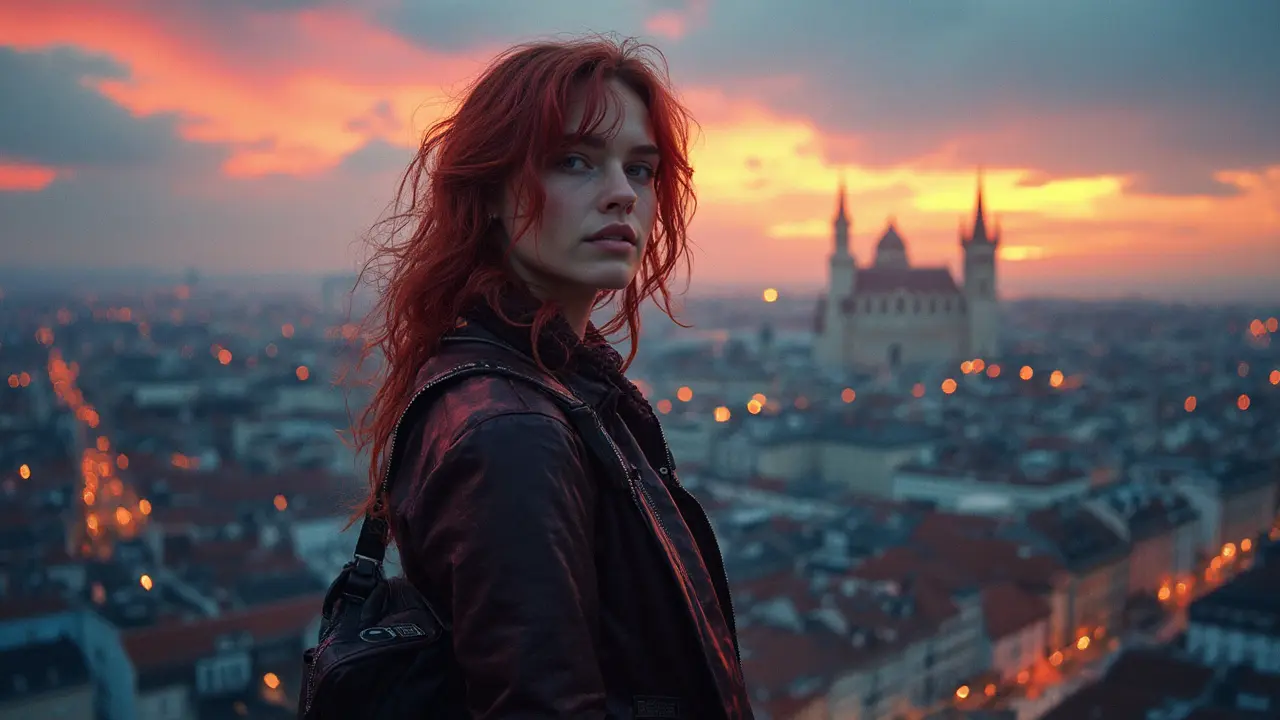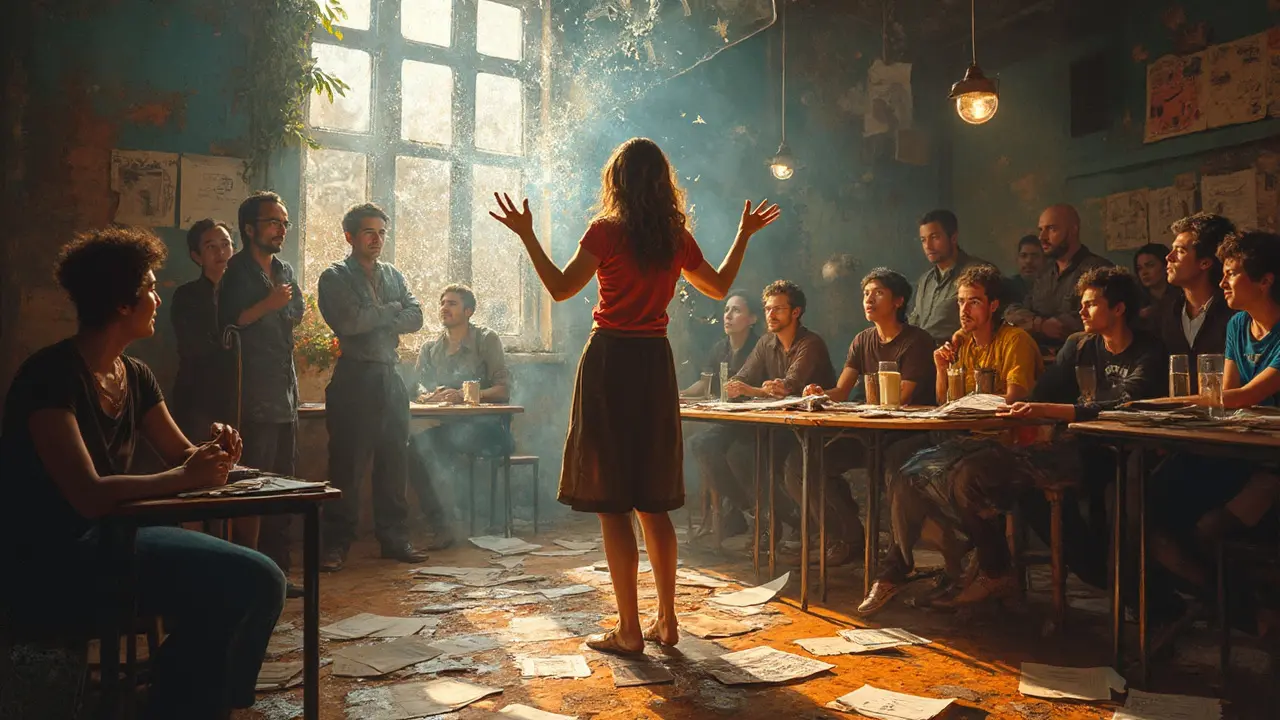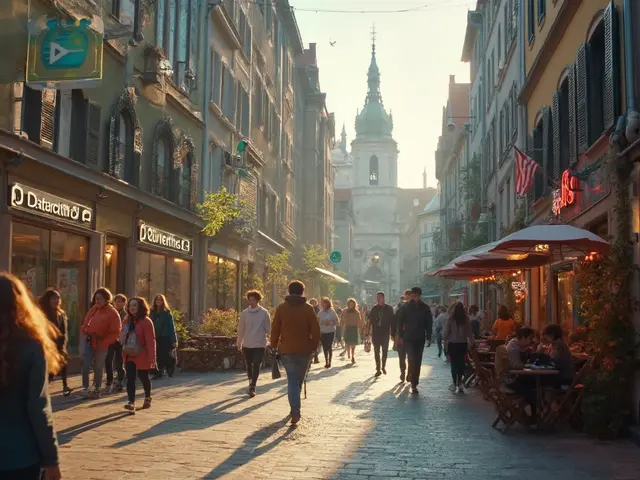Annette Schwarz: The Munich Rebel of Cinema

- Maximilian Von Stauffenberg
- 16 June 2025
- 0 Comments
Annette Schwarz never followed an easy path. Born and raised in Munich, she made her mark by ripping up the usual playbook and going all-in on tough topics most people didn’t want to touch. If you’re tired of filmmakers playing it safe, her story is a wake-up call.
Getting started in the Munich film scene isn’t easy. It’s a mix of high expectations, old-school gatekeepers, and budget headaches. Annette didn’t come from money or connections. She made it by being different—the kind of different that makes people pay attention, whether they agree with her or not.
If you’ve ever wondered what it takes to stand out in cinema, or how to turn raw ideas into films people can’t stop talking about, Annette’s approach is full of practical lessons. The first? Don’t wait for permission. She shot her first indie project with borrowed gear and a tiny crew in her own neighborhood, proving that resourcefulness beats fancy equipment any day.
- Early Roots in Munich
- Challenging the Norms
- Signature Style and Influence
- Tips for Aspiring Filmmakers
Early Roots in Munich
Annette Schwarz got her start right in the heart of Munich. Born in 1984, she grew up in one of the city’s grittier neighborhoods, away from the postcard-perfect streets tourists love. Her family didn’t have much, but they always had laughter, loud debates, and old movies playing on a beat-up TV. That’s where her obsession with film began—watching late-night reruns and daydreaming about telling stories her own way.
She wasn’t the kind of kid who fit in. Teachers called her stubborn. Annette called it “knowing what I like.” By fourteen, she was sneaking into arthouse screenings and volunteering at Munich’s tiny indie theaters, serving popcorn just to get free entry. Those theaters became her classroom, showing her that cinema could be wild, political, and totally unpolished.
After finishing high school, Annette skipped the typical route to film schools like HFF München, saying the tuition was “money better spent on actual filmmaking.” She worked odd jobs from bartending to cleaning offices, saving up for basic gear—think second-hand camcorders and DIY lighting rigs. Her first short film, shot entirely in neglected city parks, won a local youth award and soon everyone in the neighborhood wanted to help out on her next project.
Here’s a quick look at the landscape Annette was up against in Munich when she started out:
| Year | Local Film Budget (Average, €) | Women Directors (% in Bavaria) | Indie Film Audience (City-wide, est.) |
|---|---|---|---|
| 2002 | 15,000 | 5% | 12,000 |
| 2006 | 20,000 | 7% | 18,500 |
Not a lot of women were making movies in Bavaria when she started—just 5–7%. That didn’t slow her down. She found community by teaming up with singers, activists, and neighborhood skaters, giving her early projects a raw, punk feel.
So if you’re thinking about diving into filmmaking without a trust fund or fancy contacts, Annette’s journey from Munich’s sidelines is maybe the best proof you don’t need perfect conditions—just stubbornness, local support, and a taste for taking risks with your stories. That’s what planted the roots for the rebel sensibility she carried through her whole career.
Challenging the Norms
Annette Schwarz made her name by doing what most people in the Annette Schwarz scene wouldn’t dare: she questioned everything. From her first short film, critics noticed she didn’t care about sugarcoating tough realities. Her projects cut into topics like alienation, social taboos, and nightlife’s darker side—stuff most studios avoid because it’s risky. In 2012, her indie film 'Gegenlicht' got banned in three German cinemas for its raw take on youth protests but became a hit on underground streaming sites anyway.
Annette uses real locations instead of sets—think back-alley bars and packed subways—because she believes stories hit harder when they look and feel real. Her style is up-close, sometimes even uncomfortable, forcing the viewer to react. Viewers either appreciate the honesty or walk out, but no one’s ever bored.
- Refused to use high budget CGI, even as her career grew—she stuck to handheld cameras and non-professional actors to keep things real.
- First German director under 30 to win the Zurich Alternative Film Award for Best New Voice in 2015.
- Openly spoke against sponsorships that tried to change her scripts, once walking away from a major streaming deal over creative control.
If you’re considering breaking the rules, Annette’s path offers some solid tips: prioritize your vision, learn the basics of guerrilla filmmaking (her go-to for tight budgets), and don’t be afraid to get on the wrong side of gatekeepers.
| Year | Major Milestone | Reaction |
|---|---|---|
| 2012 | 'Gegenlicht' banned in cinemas | Surged in online views |
| 2015 | Wins Zurich Alternative Film Award | Boosted status but drew criticism for "rawness" |
| 2018 | Walks away from sponsorship | Maintained creative freedom |
The bottom line? You won’t revolutionize the scene by staying comfortable. Annette’s story is living proof that challenging the norms makes people notice—and sometimes even changes the rules for everyone else.

Signature Style and Influence
If you talk to anyone in Munich’s indie film scene, the name Annette Schwarz comes up fast. Her style is raw, direct, and doesn’t mess around when it comes to big topics. She likes showing human flaws without sugarcoating, so her films come off way more honest than most. Annette favors handheld camera work and natural lighting, which means you feel like you’re right in the middle of what’s happening, not just watching from the sidelines.
She isn’t afraid to mix harsh reality with sharp humor, and that balance stands out. For instance, in her breakout film “Hinterhof,” Annette took tough social issues—like job loss and family strife—and made them relatable without getting preachy. It’s that down-to-earth voice that earned her not just local awards after 2018, but steady attention from critics across Europe. She once mentioned in a Berlin interview that her main creative rule is, “the story comes before everything else.” That’s why she spends more time with scripts than on expensive visuals.
Her influence also shows up in how younger filmmakers approach their projects. There’s a new wave of filmmakers in Munich openly crediting Annette for pushing them to break away from polished stereotypes. She’s known to mentor at summer workshops, helping beginner directors figure out storyboarding and how to work fast with small budgets. One common tip she gives: keep your cast small and focus on honest dialogue, because fake drama kills a scene’s impact.
If you’re looking to follow her footsteps, here’s how her style might help:
- Don’t rely on big budgets—let natural locations do the heavy lifting.
- Keep stories personal; audiences connect best with something real.
- Always prioritize what serves the story, even when it means taking creative risks.
- Don’t obsess over technical polish. Focus on the mood and honesty of your scenes.
This attitude made Annette Schwarz more than just a Munich rebel; she’s a force that shaped the way indie cinema works in Germany right now.
Tips for Aspiring Filmmakers
If you want to follow in Annette Schwarz’s footsteps as a Munich rebel in cinema, there are a few things you should know. She didn’t just get lucky; she worked smart, moved fast, and learned from every blunder. Here are some practical tips that line up with how she crashed through the old walls:
- Don’t stress over gear. Annette shot her early work using borrowed cameras and free editing software. She believed storytelling beat technology every time—and some of her first projects were filmed on a friend’s kitchen table.
- Use what you have. Her first short got attention because she filmed it in locations she knew: her apartment, local parks, and the back alleys of Munich. Set design was whatever she could scrounge up or borrow for free.
- Build your crew from real life. Need extras or help? She invited friends, neighbors, even her bus driver once. Keeping it informal helped everyone relax and get creative.
- Share your work widely, no matter what. She uploaded her stuff to YouTube and local film fests—she even printed cheap flyers to pack university film screenings.
Here’s a breakdown of how Annette’s methods paid off, even on a limited budget:
| Project | Budget | Festival Selections | Video Views (First Month) |
|---|---|---|---|
| First Short Film | €200 | 2 | 4,350 |
| Debut Feature | €7,000 | 8 | 18,000 |
Annette often quoted filmmaker Christopher Nolan:
"The best camera is the one that's with you. Don't wait for the perfect moment—shoot it now."
One last lesson: don’t be afraid of negative feedback. Annette got a lot of criticism in her early days, especially for breaking the rules. But she credits those tough reviews for making her work sharper and more honest.
- Don’t wait for funding—film on your phone if you have to
- Reach out to local actors and students (Munich has dozens of young artists looking for projects)
- Submit everywhere—even small festivals can open big doors
At the end of the day, becoming a rebel filmmaker isn’t about money or fancy contacts. It’s about grit, consistency, and not letting setbacks knock you out of the game.


